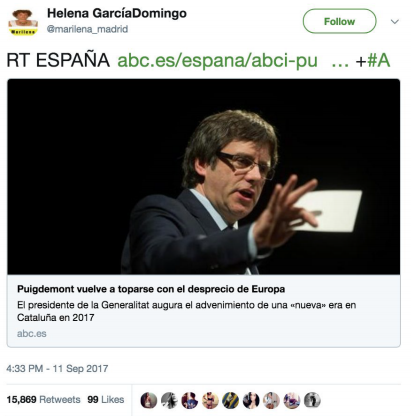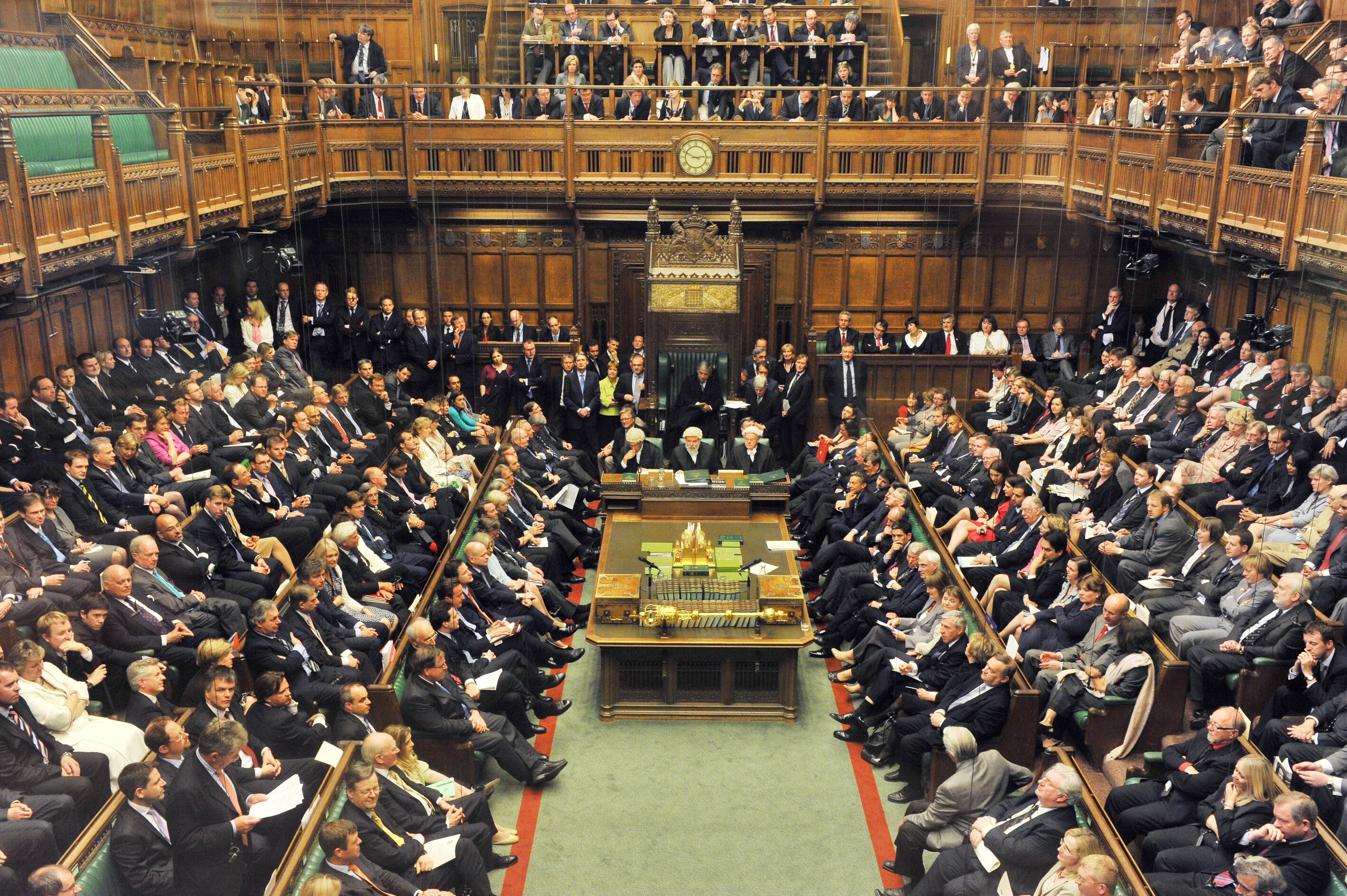The theory that Russia promoted the Catalan independence movement through fake news websites and large-scale retweeting is "exceptionally misleading". The claim comes in a report received by the UK Parliament from a US social-networking expert which takes apart the thesis of newspaper El País and state think tank Real Instituto Elcano, that Russia has been interfering in Catalonia in favour of independence via fake news and social media botnets. The report says that the theory of Russian interference is based on analysis that is "sloppy" and "one-sided".
UK Parliament 'fake news' committee publishes US expert report showing claims pushed by Spain about Twitter bots & #Catalonia are false and, in fact, a massive 15,000 strong botnet spread anti-#Catalan narratives.
— WikiLeaks (@wikileaks) 19 avril 2018
HTML: https://t.co/YDJWoerRQc
PDF: https://t.co/3lkeoWiBV9
The report, from social-media expert MC McGrath, says that the Russian influence theory is based on "exaggerations, inaccurate data and sloppy analysis". It describes a "failure to accurately use digital analytics tools", "dubious research methodology" and "one-sided analysis that ignores botnets disseminating anti-Catalan independence messages". It also says that the influence of bots and trolls was "exaggerated" and that Julian Assange's influence on media was "overstated".
The report says that the analysis behind the theories of Russian interference in Catalonia includes "egregious mistakes". It gives as an example the analysis of Wikileak's founder Julian Assange's Twitter profile. El País had reported that analysis from TwitterAudit showed that 59% of his followers are fake profiles. The report states that "this assertion is entirely inaccurate", not least because it's based on data "from February 12th, 2014, three years before anything was tweeted from the account".
One-sided analysis
The document also notes that the reports only took into account tweets, retweets and news stories with a pro-independence slant, but ignored pro-union or anti-Catalan messages, whatever their source.
It gives, as an example, a tweet from the account @marilena_madrid, which tweeted a report from Spanish newspaper ABC claiming that Puigdemont was starting a European tour with no support or meetings scheduled. This tweet got almost 16,000 retweets, but only 99 likes, which, according to McGrath, is a common pattern for bots.

The report was submitted as written evidence to the House of Commons' Digital, Culture, Media and Sport Committee's Fake News Inquiry after David Alandete from El País, Francisco de Borja Lasheras from the European Council on Foreign Relations, and Mira Milosevich-Juaristi from Real Instituto Elcano, presented evidence to the committee about disinformation on social media during the referendum in Catalonia.

